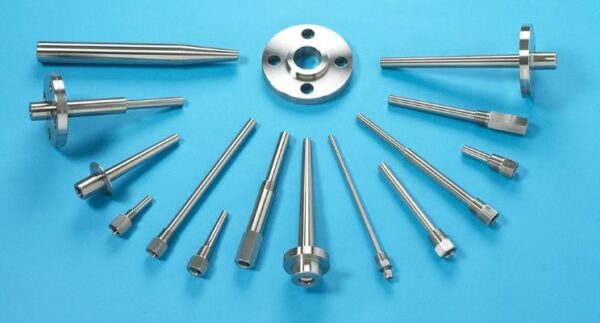
For several industries, temperature is the most crucial process variable (PV) to assess, as it can have a huge impact on the safety, profitability, and quality of the manufacturing processes. Choosing the right type of thermowells manufacturer assists in ensuring optimal system performance, extended service life, easy maintenance, and complete integrity of the industrial process being evaluated.
In simple words, a thermowell is a structure that encircles the thermocouple (or RTD) probe and safeguards it from process aspects like liquid flow rates or caustic or derogatory materials. They are also used to keep the uniformity of pressure perimeters or boundaries in systems.
What to Consider While Selecting a Reputed Thermowells Manufacturer?
The selection of an appropriate thermowells manufacturer depends on many factors. The following tips will help you make a good choice.
1. Consider Different Industrial Uses
Thermowells are employed to protect temperature sensors like thermocouples, thermistors and bimetal thermometers against damage from excess pressure, corrosion and material velocity[1] [2] . They also enhance the durability of the sensor, allow sensor change without draining the system and decrease the possibility of contamination. Made for high-pressure usage, they are generally machined from bar stock to make sure uniformity. Smaller ones for use in low-pressure surroundings may be manufactured from tubing with one end welded closed.
2. Look into Various Types
Thermowells are classified as per the stem design or their process connection. A straight thermowell has a similar diameter all through the complete insertion length and gives safety against erosion and corrosion. Stepped ones generally have a ¾” diameter at the top, which is decreased to ½” diameter close to the tip. The reduced surface area permits stable velocities and rapid temperature response for sensing equipment. Tapered has a diameter that reduces slowly over the insertion length. They provide greater strength in addition to quick response times to temperature variations. These are most frequently used in high-velocity operations.
Case studies done on straight and tapered thermowells used in natural gas pipelines concluded that straight ones failed prematurely when uncovered to flow-activated vibrations.
Here are some popularly used types among different industries and will help you find the best thermowells manufacturer, too.[3]
A. Threaded: As the name suggests, these are directly anchored into a thermowell threadolet or into the tapped or weak pipe wall.
B. Flanged: It involves a flange collar, which is situated on the mating flange which is linked to a pipe nozzle.
C. Socket Weld: This type may be precisely welded into the crater of the weldolet or fixed into the pipe wall.
D. Weld-in: These are directly embedded into the process vessel or piping.
3. Choose the Right Material
These devices are made from different materials. The selection of the material is essential for the execution, in addition to the long life of the device. Further, this choice will rely on the kind of chemical, temperature, and flow rate to which the thermowell will be exposed. Some chemicals have increased corrosive impacts at higher concentrations and temperatures. Additionally, the particles in the liquid may lead to disintegration. Here are a few significant types of materials employed for manufacturing thermowells:
A. Carbon Steel
B. Stainless Steel
C. Titanium
D. Molybdenum or Chromium Steels
E. Haynes Alloy
F. Inconel
G. Incoloy
H. Monel
G. Hastelloy
Stainless steel is generally used for the making of this device because of its increased corrosion resistance. Carbon steels are restricted to usage with less pressure and temperature. Furthermore, molybdenum and chromium steel are perfect for pressurized vessels, which require high erosion resistance. Haynes alloys are employed for sulphadiazine, carburising, and chlorine-filled surroundings.
4. Check Immersion Length
The immersion length is sometimes called the insertion length. It is the distance between the thermowell link point and the tip. It is ever suggested to favour a thermowells manufacturer that offers a large insertion length. This assists in extending the temperature-sensitive part of the sensor into the mode of measurement.
5. Look at Vibration
The thermowells break down for many reasons, and vibration is one of the significant reasons. One general reason for vibration is the flow of the medium to the portion where the process temperature is being measured. Thus, it is essential to choose a thermowells manufacturer that provides this equipment with immense stiffness as it helps in avoiding vibrations.
Final Words
Thermowells play an essential role in the process industry. So, it is significant that you buy them from a trustworthy thermowells manufacturerlike Tempsens Instrument Pvt. Ltd. The company sources this equipment from industry-leading materials and is dedicated to offering the right product for your industrial use.
The sentence is not okay.change it.
Done
Not making sense.change it.